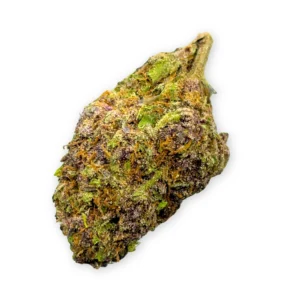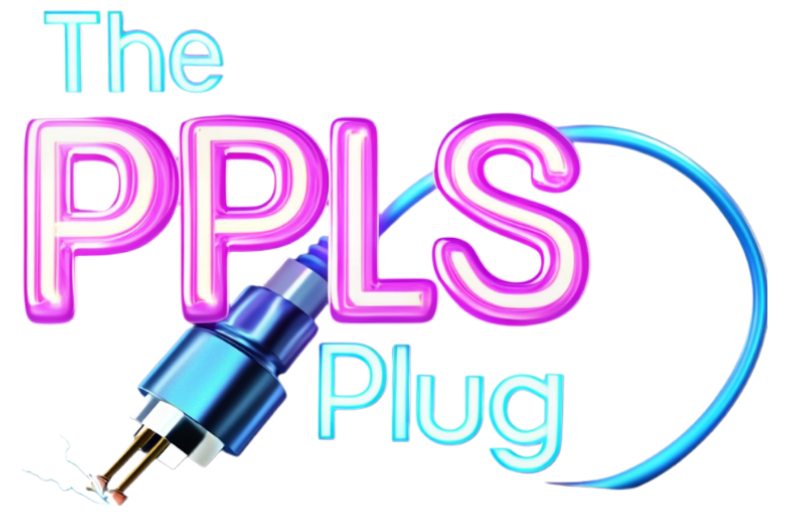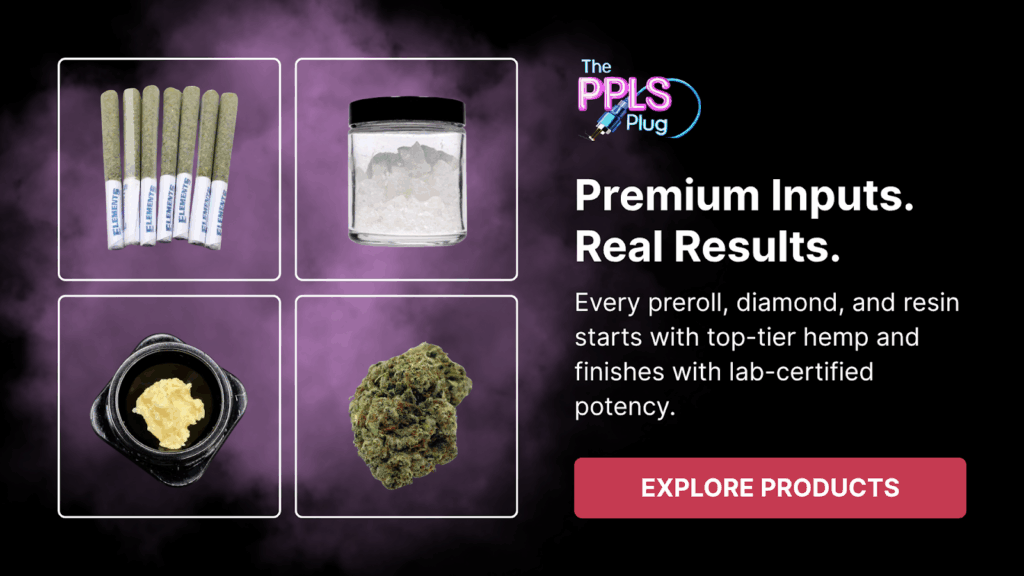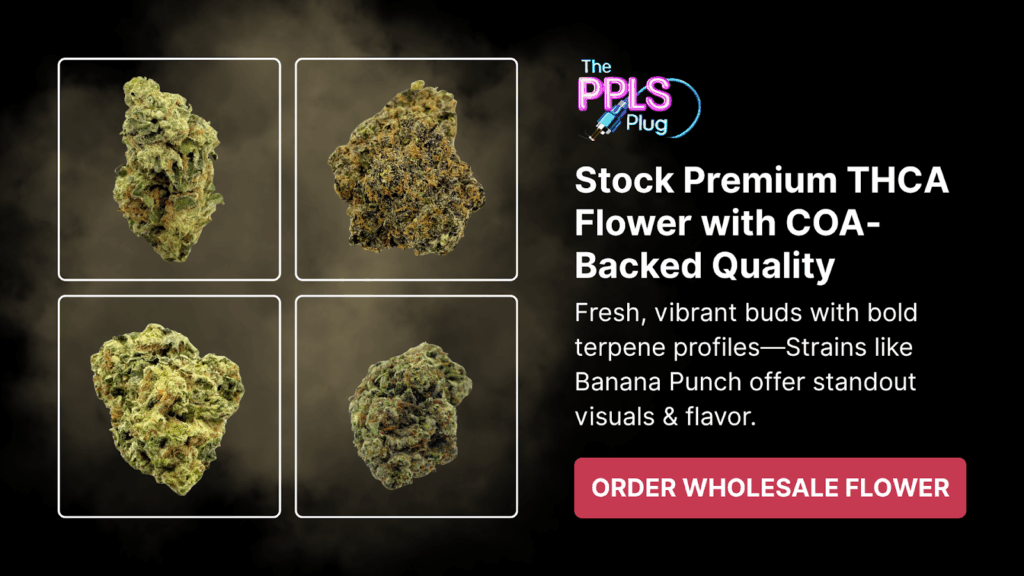How To Open A Dispensary In Virginia: Rules, Permits & Startup Costs
Key Takeaways:
- Legal Status: Adult-use dispensary licenses are not currently available in Virginia, with retail sales limited to approved pharmaceutical processors.
- Startup Planning: Although licenses are not yet open, entrepreneurs can prepare now by conducting financial planning, zoning research, and brand development.
- Community Insight: The PPLs Plug supports Virginia’s cannabis culture by offering resources, products, and connections for future industry players.
Opening a dispensary in Virginia isn’t as easy as grabbing a lease and putting a logo on the door. The legal scene is still catching up, the rules are tight, and the opportunities? Limited, for now. But that hasn’t stopped people from asking the right questions, making plans, and keeping their eyes on what’s next. If you’re serious about stepping into Virginia’s cannabis space, you’ll need more than ambition. You’ll need to understand the systems, timing, and actual costs of getting started.
At The PPLs Plug, we’re not guessing. We’ve been building with the culture, showing up in our community, and setting the tone in Virginia’s cannabis scene since day one. We know where things stand, and we know where it’s going. You won’t find overpromises or industry buzzwords here, just real info, honest direction, and a grounded look at what it takes to get in the game when the doors finally open.
In this piece, we’ll be breaking down how to open a dispensary in Virginia, including the current laws, licensing barriers, expected startup costs, and what you can do now to get ahead.
Understanding Virginia’s Cannabis Laws
Before diving into how to open a dispensary in Virginia, it’s essential to understand the legal framework. Virginia has made notable progress toward cannabis reform, but the landscape is still evolving. While adult-use cannabis was legalized in 2021 for personal possession and home cultivation, commercial sales remain tightly regulated and, in most cases, limited.
Currently, retail dispensaries for adult-use cannabis are not yet open to the general public in Virginia. The only dispensaries operating legally are those that have obtained licenses through the state’s pharmaceutical processor program, which is focused on medical cannabis.
The Virginia General Assembly has been debating legislation around expanding retail sales, but as of now, only licensed pharmaceutical processors are allowed to distribute cannabis-derived products under specific guidelines. Any attempt to open a new dispensary must navigate this complex and regulated environment, and staying current with legislative updates is crucial.
While some anticipate future changes that could open the door to broader licensing, Virginia’s cannabis industry remains in a transitional phase. That makes preparation, compliance, and understanding current laws absolutely critical before launching any cannabis-related business.
Is It Legal To Open A Dispensary In Virginia?
Right now, it is not legally possible to open a new adult-use cannabis dispensary in Virginia unless you’re part of the existing pharmaceutical processor program. This program, managed by the Virginia Board of Pharmacy, licenses a limited number of operators to cultivate, process, and dispense cannabis-derived products under strict medical oversight.
The state has paused the rollout of new licenses while lawmakers continue to debate the structure of a whole adult-use retail market. That means aspiring dispensary owners must either wait for regulatory changes or explore partnerships or acquisitions involving existing license holders, both of which come with legal and financial complexity.
Still, preparation is everything. If you’re serious about entering Virginia’s cannabis space, this is the time to:
- Stay informed on pending legislation
- Build your business plan and secure funding
- Research compliant real estate opportunities
- Network within the local cannabis community
This early-stage work can give you a competitive edge once the market opens more broadly.
While the laws are restrictive today, opportunities may emerge as the state’s legal landscape evolves. Keeping your plans flexible and informed will position you well when the time comes.
Licensing And Permit Requirements
Licensing is the backbone of any dispensary operation, and in Virginia, it’s also one of the biggest hurdles. Currently, new retail dispensary licenses are not being issued for adult-use cannabis. The only entities permitted to operate are a select group of pharmaceutical processors licensed under Virginia’s medical cannabis framework.
Here’s what’s required under the current system for those who are eligible:
- Pharmaceutical Processor License: This is the core license needed to cultivate, produce, and dispense cannabis-derived products. Only a few companies in Virginia hold these.
- Agent Registration: Every employee involved in cannabis operations, from production to sales, must register with the Virginia Board of Pharmacy.
- Facility Permits and Local Approvals: All facilities must comply with local zoning, safety codes, and business license requirements. Local governments have the authority to approve or restrict cannabis-related operations within their jurisdiction.
Because the current market is closed to new applicants, there’s no active application process for retail dispensaries. However, if Virginia enacts adult-use sales legislation in the future, a new licensing framework will likely be established, potentially including:
- Retail Dispensary Licenses
- Cultivation Licenses
- Processing or Manufacturing Licenses
- Distribution Licenses
To stay ahead, prospective business owners should be monitoring updates from the Virginia Cannabis Control Authority (VCCA), which is expected to oversee any expanded adult-use program.
Startup Costs: What to Expect
Opening a dispensary in Virginia, once it’s legally possible, won’t come cheap. Even in states with established adult-use programs, cannabis startups face high financial barriers, and Virginia is expected to follow suit when (or if) regulations expand.
While exact figures will depend on future legislation, you can start estimating your capital needs based on other states and current costs in Virginia’s pharmaceutical processor model. Here’s a general breakdown of what startup costs might look like:
Licensing & Legal Fees
Expect significant legal expenses just to apply for a license. If Virginia introduces an application fee structure, you might see:
- Application Fees: $5,000–$10,000+
- Annual License Fees: $20,000–$100,000 depending on license type
You’ll also want to consult with legal counsel to review compliance, draft operating agreements, and help navigate local zoning regulations.
Real Estate And Buildout
Location is everything, and zoning restrictions can limit where dispensaries can operate.
- Lease or Purchase: $50,000–$200,000+
- Buildout/Renovation: $75,000–$300,000 depending on size, security, and layout
Security And Compliance Systems
State regulations will likely require surveillance, alarms, secure storage, and tracking software.
- Security Setup: $25,000–$50,000+
- Compliance Software: $5,000–$15,000/year
Inventory, Equipment & Staffing
Initial inventory costs (depending on licensing) may be high, along with staffing your dispensary with trained agents.
- Initial Inventory: $50,000–$150,000+
- Employee Wages & Training: Varies based on team size
Marketing, Branding & Operations
Creating a brand that resonates in Virginia’s emerging market is key. That includes signage, product displays, and digital presence.
- Branding & Marketing: $10,000–$50,000+
- POS & Business Tools: $5,000+
Location, Zoning, And Compliance
Securing the correct location is one of the biggest challenges in opening a dispensary, and in Virginia, it will likely be even more complex once retail licensing opens. Zoning laws are controlled at the local level, meaning each city or county can determine where dispensaries can operate, or if they can operate at all.
Zoning Considerations
Most municipalities will require dispensaries to be located a certain distance from:
- Schools
- Parks
- Residential zones
- Places of worship
These buffer zones limit where cannabis businesses can legally operate, often funneling competition into a small pool of eligible commercial properties, which drives up demand and costs.
Local Government Approval
Even if the state issues licenses, local jurisdictions have the power to opt out of allowing cannabis retail businesses entirely. Entrepreneurs must:
- Research municipal cannabis ordinances
- Engage with city planning departments
- Attend local council meetings
- Secure land use permits or special-use approvals
Getting ahead of this process can save time and resources once the market opens.
Facility Compliance
Expect tight regulation around:
- Security systems (surveillance, alarms, restricted access)
- Inventory tracking
- Storage of products
- Customer access control
Compliance isn’t just about avoiding fines; it’s about proving you’re a trustworthy operator in a highly scrutinized space.
How The PPLs Plug Supports Local Entrepreneurs
While dispensary licensing in Virginia remains limited, The PPLs Plug is already laying groundwork within the community, not as a dispensary, but as a brand focused on culture, creativity, and forward momentum in the cannabis space.
Whether you’re prepping to open a business or just exploring the landscape, The PPLs Plug offers products and resources that reflect Virginia’s growing cannabis culture. The brand stands as a reminder that supporting the industry doesn’t start with a license; it begins with intention, education, and local connection.
A Platform For Growth
The PPLs Plug is more than a product provider; it’s a platform. By staying rooted in authenticity and purpose, the brand helps normalize conversations around cannabis and community development in Virginia.
If you’re exploring how to open a dispensary in Virginia and want to align with like-minded players, consider partnering with businesses that are already making a positive impact locally, even outside of the licensed dispensary model.
Stay Connected
As the laws change, the PPLs Plug continues to evolve. Whether you’re interested in building your own business or just want to stay informed, tapping into local networks like this one can be one of the most valuable steps you take.
Explore the full range of offerings at The PPLs Plug, and see how grassroots brands are shaping the future of cannabis in Virginia.
Final Thoughts
Opening a dispensary in Virginia isn’t straightforward yet. With current laws limiting retail sales to a small group of licensed pharmaceutical processors, new opportunities remain tied to future legislative changes. But for those willing to plan, stay informed, and build strategically, the groundwork laid today could open doors tomorrow.
From understanding legal restrictions to mapping out costs and compliance, this phase is about preparation, not just ambition. Entrepreneurs who view this time as an opportunity to learn, connect, and refine their vision will be best positioned to launch when the market shifts.
At The PPLs Plug, we’re not waiting for the industry to catch up; we’re building momentum now. Whether you’re watching the space unfold or preparing for your own venture, aligning with brands and communities already making moves in Virginia is a clever play.
Frequently Asked Questions About How To Open A Dispensary In Virginia
What is the earliest year Virginia might allow adult-use dispensary licenses?
There’s no confirmed timeline, but the earliest potential rollout for adult-use dispensary licenses is tied to future General Assembly sessions. Some legislative proposals have targeted dates like 2025 or later; however, no law has been passed to confirm these dates.
Can I apply for a dispensary license in another state and transfer it to Virginia later?
No, cannabis licenses are non-transferable across state lines. Each state has its own regulatory body and process, and Virginia does not recognize permits from other states.
What kind of business entity should I form to prepare for a dispensary in Virginia?
Most cannabis businesses utilize an LLC or C-Corp structure for liability protection and tax planning purposes. It’s best to consult with a cannabis-focused business attorney in Virginia to determine the proper setup.
Will federal legalization affect dispensary opportunities in Virginia?
Federal legalization could impact banking, taxation, and supply chains, but state-level licensing would still be required. Virginia’s specific laws would still control who can operate dispensaries within the state.
Are there grants or funding programs for cannabis entrepreneurs in Virginia?
At this time, Virginia does not offer cannabis-specific grant programs. However, general small business grants or private equity sources may be available depending on your background and proposed business plan.
Can I start a cannabis delivery service while waiting for retail licensing?
Not legally. Cannabis delivery is only allowed by licensed pharmaceutical processors under current rules. Offering delivery services without a license is prohibited in the state of Virginia.
What types of insurance would a dispensary in Virginia need?
Once legal, dispensaries will likely need general liability, product liability, property coverage, and workers’ compensation. Some insurers now offer cannabis-specific policies.
How do I stay informed about cannabis law changes in Virginia?
You can track updates through the Virginia Cannabis Control Authority (VCCA), legislative news sites, or by networking with local cannabis business groups.
Sources:
- Richardson, L. E., Jr., Mallinson, D. J., Altaf, S., & Neeley, G. (2025). US state cannabis policy bundles dataset. Scientific Data, 12, 971. https://doi.org/10.1038/s41597-025-05284-2
- Rubin, R., et al. (2021). Analysis of state cannabis laws and dispensary staff recommendations to consumers: association with medicalization of state policy. JAMA Network Open, 4(8), e2124511. https://doi.org/10.1001/jamanetworkopen.2021.24511
- Bergman, M., & Smith, A. C. (2022). Cannabis regulations in the United States: A (Very) Brief Overview. In B. H. Smith & P. J. Williams (Eds.), Cannabis Science and Therapeutics. https://doi.org/10.1007/978-3-031-80352-9_6
Latest Products
-
 Rated 0 out of 5Sale!Select options This product has multiple variants. The options may be chosen on the product pageLog In to see prices
Rated 0 out of 5Sale!Select options This product has multiple variants. The options may be chosen on the product pageLog In to see prices -
 Rated 0 out of 5Sale!Select options This product has multiple variants. The options may be chosen on the product pageLog In to see prices
Rated 0 out of 5Sale!Select options This product has multiple variants. The options may be chosen on the product pageLog In to see prices -
 Rated 0 out of 5Sale!Select options This product has multiple variants. The options may be chosen on the product pageLog In to see prices
Rated 0 out of 5Sale!Select options This product has multiple variants. The options may be chosen on the product pageLog In to see prices -
 Rated 0 out of 5Out of stockSelect options This product has multiple variants. The options may be chosen on the product pageLog In to see prices
Rated 0 out of 5Out of stockSelect options This product has multiple variants. The options may be chosen on the product pageLog In to see prices



